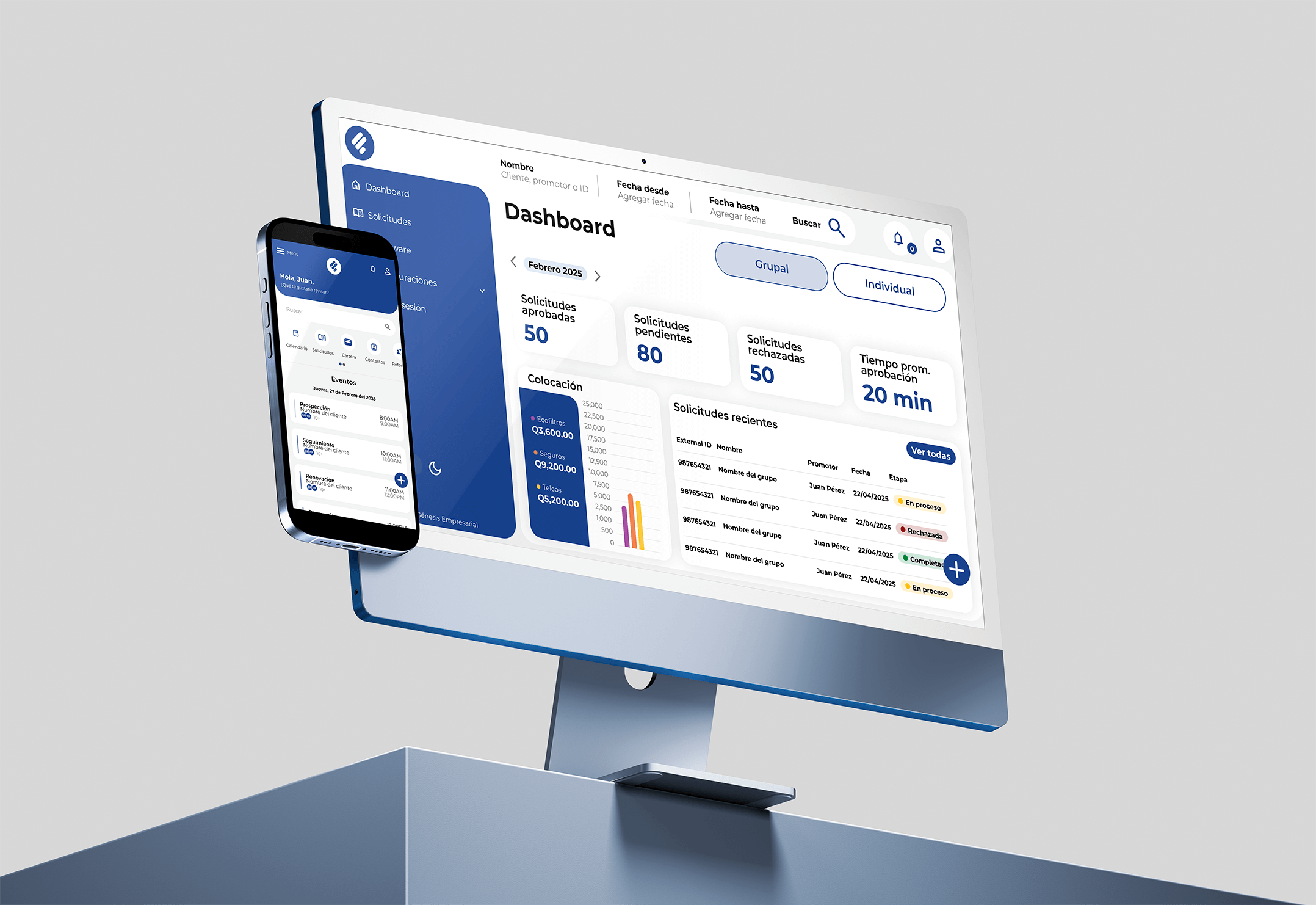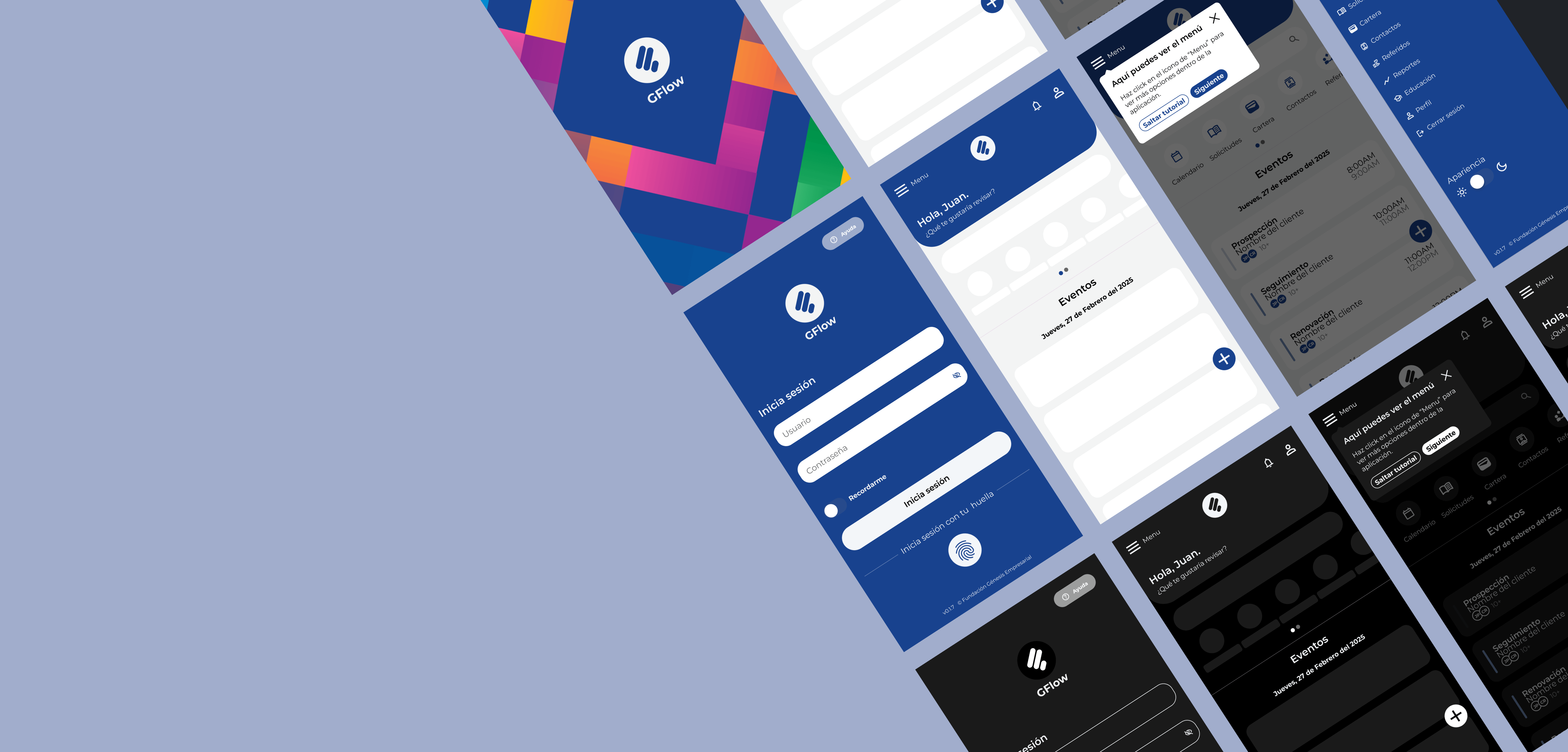The client, a non-profit financial institution serving underserved communities in
Guatemala, employs more than 4,000 staff members who rely on various internal tools to manage microloans. One
of their core systems—a legacy loan management app—had become cluttered and unintuitive due to years of
patches and additions. My team was already engaged in a UX overhaul when the organization decided to take a
more holistic approach: refreshing not just the structure and flow, but also the visual identity of the
product. This provided the perfect opportunity to rethink the app’s entire experience from the ground up.
Case Study
Project Overview
The Problem
The existing application had accumulated numerous usability and accessibility issues over time. Staff
struggled with inefficient workflows, inconsistent interface patterns, and unclear navigation. Key pain points
included:
- Overloaded screens with outdated UI components
- Poor mobile responsiveness for field agents
- Limited discoverability of key actions
- A visual design that no longer reflected the organization’s mission or values
These problems not only slowed down loan processing times but also created frustration for both new and
experienced employees.
The Goal
Our goal was twofold:
- Redesign the user experience to streamline loan management tasks, reduce cognitive load, and improve
efficiency across devices. View GFlow UX Design Case Study
- Rebrand the application to reflect a modern, trustworthy, and people-focused identity aligned with the
nonprofit’s values and renewed digital direction.
This redesign would serve as a foundation for future product improvements, promote internal adoption, and
boost user confidence in the tool.
My Role
As the Lead UX Designer, I was responsible for:
Responsibilities
- Conducting stakeholder interviews and usability audits
- Creating user personas and mapping current pain points
- Designing low- to high-fidelity wireframes and prototypes
- Designing the new app logo to align with the updated brand identity
- Coordinating with developers to ensure pixel-perfect implementation
- Introducing design system components for future scalability
I collaborated closely with internal stakeholders, field agents, and the development team to ensure the
redesign was both functional and visually cohesive—reinforcing trust through consistent branding and intuitive
interaction design.
Result


